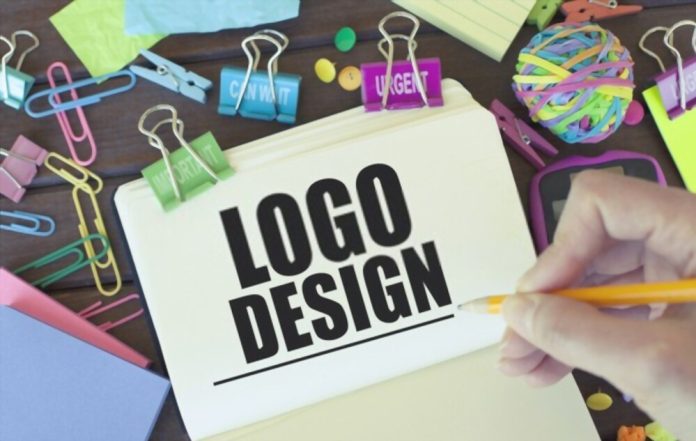To understand a good logo, you must first ask yourself what it is for. A logo is a visual tool that aligns emotionally with a company’s target audience.
Companies need a way to stand out themselves from their competitors by creating a brand identity and unique marketing, stationery, and the key messages they convey. For example, a logo is the only visual form of a specific product or service ownership. It is probably customers’ first contact point when dealing with a company or brand.
A logo comes in three major types.
The first is a logo with a wordmark, the plain text printed name of a company, its services, or products.
A pictorial logo is the second primary type of logo design, graphic icons or signs, such as natures, tick marks, and more.
The last primary type of logo design is an abstract logo, also considered a pictorial logo. Rather than an easy-to-understand image like an animal or a vehicle, it’s an abstract symmetrical form that signifies a brand.
Choosing a logotype for your business involves many factors, such as which industry your company operates in, its disposition, title, and the logo that best fits your business.
As part of your company’s visual image, your logo is the center point of it. You want individuals to understand your logo and immediately relate it to your business. Finding a suitable logo for your business is hard, but here are six rules for creating a good logo design.
Simple
The most superficial results are often the most actual. Why? Because a simple logo can satisfy most other wants of a classical design.
Simplicity makes the design handier. By taking a minimalist approach, you can use your logo in various mediums, such as billboards, business cards, and even small things like website and social media profile icons. Simplicity also helps make your designs recognizable to your audience and more likely to offer lasting quality. Think of the logos of big companies like Google, Mercedes, and FedEx. Their logo is simple and easy to identify.
Versatile
Whether your business is a brick-and-mortar store or an online store, your logo should be versatile.
A good logo works on many platforms. The logo appears on all assets, from staff attire to marketing materials. So, it must be practical. Even the most beautiful and unique logo can lose reliability if not designed correctly.
Using a logo that only applies to your website bounds your marketing opportunities. Creating a logo in vector format that can be resized without losing quality is entirely thinkable. This is because they are made in a different way than usual images. For example, if your logo follows this tip, you can create a more versatile logo.
Relevant
For a logo to be reflected good, it must first meet the unique requirements of the industry it serves in terms of feel and personality. Brand identities in the same sector are “similar” for a reason. If you stray too far from it, you risk losing touch with your audience.
Brands like Nike and Adidas use bold and energetic fonts and symbols. On the other hand, fashion brands naturally take a more stylish and subtle approach. Therefore, a good logo should convey a feeling that matches what the brand represents. It can communicate your values and mission, but it doesn’t necessarily have to say precisely what you’re doing.
Unique
A good logo design is the one you remember. A good logo should be relevant to your industry, but that doesn’t mean it should look the same as your competitors. Simply blending in can make your consumers more memorable than your competitors. It’s not going to be a brand.
A good logo is memorable, and this recognition can be achieved in several ways. For example, the unusual two-tailed Starbucks mermaid symbol we can’t soon forget is very similar to the graphic style of common logos in the food industry. Likewise, if you look closely at the Toblerone, you will find the bear secreted in the mountain. This ingenious idea is a great way to differentiate yourself from others in the same industry.
If it’s unique enough, it might stick in someone’s mind after a few glances. A good test for this is the sketch. First, show the logo to someone who has never seen it for 10 seconds. Then, hide it and ask for it to be removed from your head. If they can sketch it perfectly, your company has a great logo. However, there is another aspect that affects the success of the logo and the success of the sketch.
Memorable
If a good logo design is to classify and characterize your business, and your goal is acknowledgment and prominence, your logo should be memorable. A unique, striking, and distinctive logo make it identifiable and memorable – when you look at it, it instantly associates with your brand.
A vital element of a good logo design is its uniqueness. To influence consumer attitudes, you need to stand out from your competitors. A simple, complete, relevant logo speeds up brand recall and helps your brand gain recognition faster.
Timeless
The final characteristic of a good logo design is to stand the course of time. The best logos are as appropriate and effective as they were designed. Avoid the enticement to follow recent trends and fads because these will make your logo stale and outdated.
A timeless logo can help you build your brand, strengthen your marketing, and solidify your position in the industry. However, a solid and effective logo remains relevant and must not be updated for present or future use. It’s always a good decision to keep the colors in a concise and clear visualization. Many famous logos have remained the same for years.
So now I have mentioned the six main characteristics of a good logo design. I believe you found this blog post helpful. So now you must hire a custom logo design service provider to get the best logo for your business!
Author Bio:
Mack Chris is an SEO specialist with more than five years of experience promoting and marketing brands in the digital world. He loves to read and share his digital marketing experience with the rest of the community. He enjoys drawing, sketching, playing football, and swimming in his spare time.





















